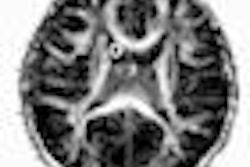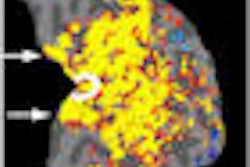With the aid of functional MRI (fMRI), researchers are learning new information about the motor skills of children with autism. The study from the Kennedy Krieger Institute in Baltimore compared autistic children with their normal peers while performing a simple motor task -- tapping their fingers in sequence.
The study, published online on April 23 in the journal Brain, compared 13 children with high-functioning autism and 13 typically developing children while they tapped fingers sequentially.
The normal group had increased activity in the cerebellum, a region of the brain important for automating motor tasks, while the autistic children had increased activity in the supplementary motor area, a brain region that is important for conscious movement.
"The results suggest that children with autism must rely on more conscious, effortful motor planning because they are not able to rely on the cerebellum to automate tasks," said lead investigator Dr. Stewart Mostofsky in a statement released with the study.
"These results suggest that in children with autism, fairly close regions of the brains involved in motor tasks have difficulty coordinating activity," he said. "If decreased connectivity is at the heart of autism, it makes sense social and communication skills are greatly impaired, as they involve even more complex coordination between more distant areas of the brain."
Related Reading
MEG reveals sound processing delays in autistic children, December 2, 2008
Study maps brain abnormalities in autistic children, November 29, 2007
Left brain picks desired sounds from cacophony, November 16, 2007
Studies shed light on autism effects and treatment, December 6, 2006
fMRI helps explain social dysfunction with autism, October 10, 2006
Copyright © 2009 AuntMinnie.com




















